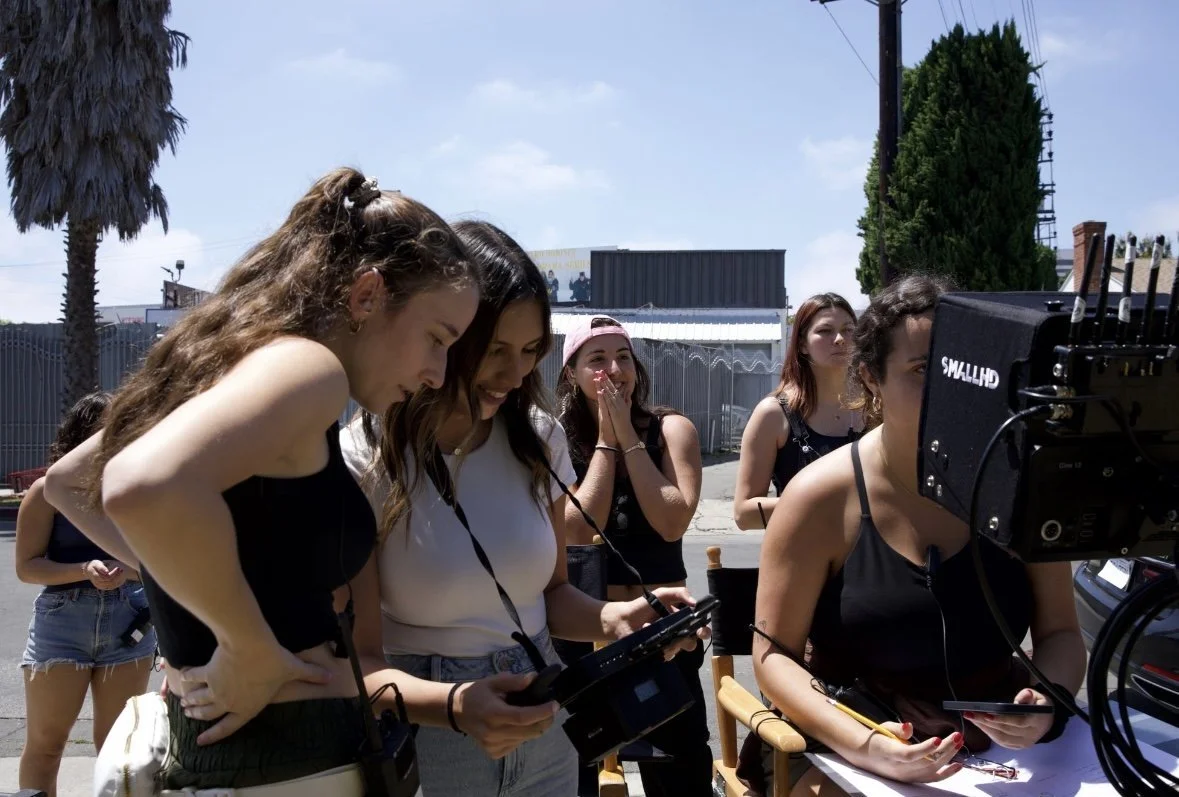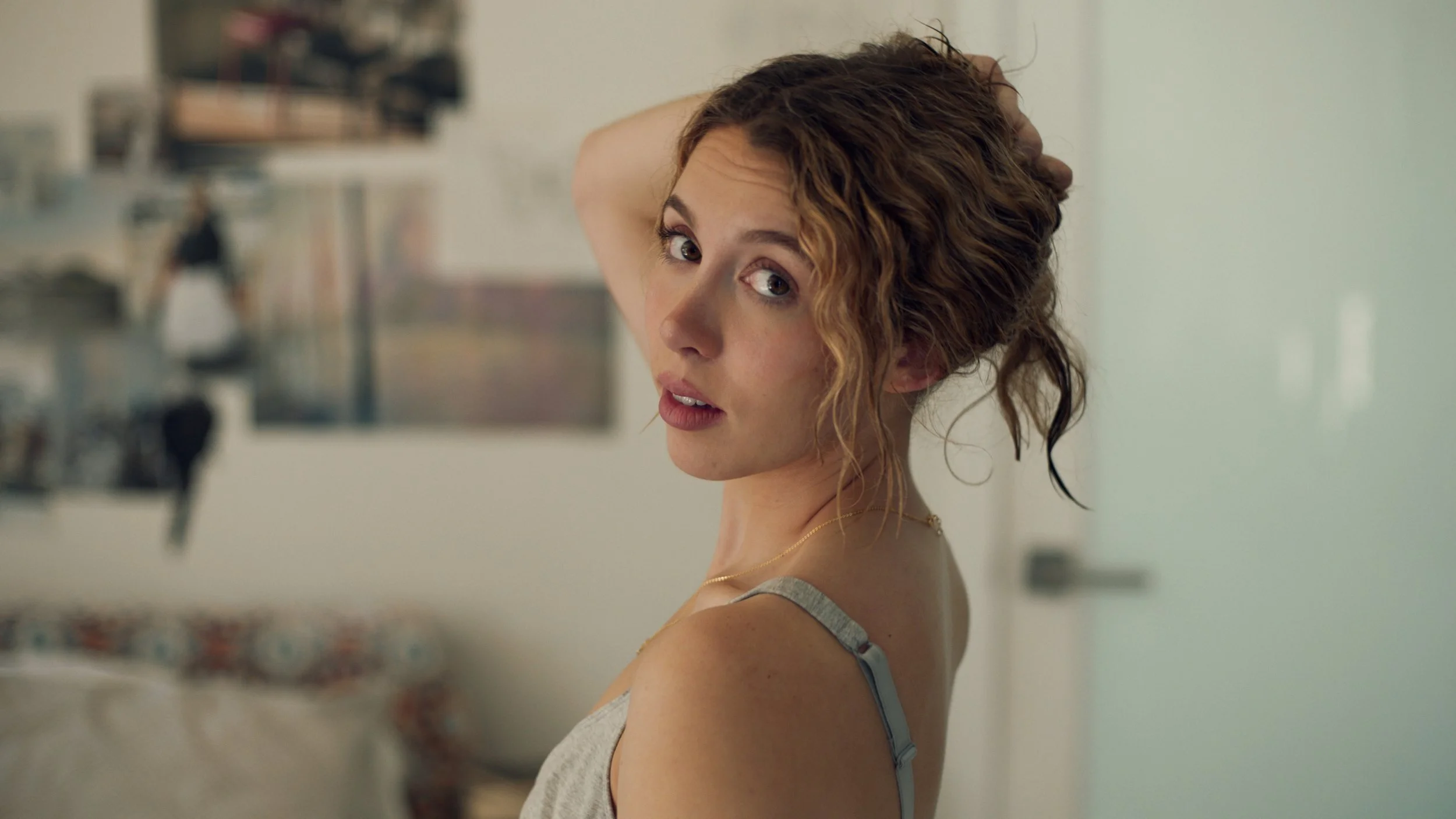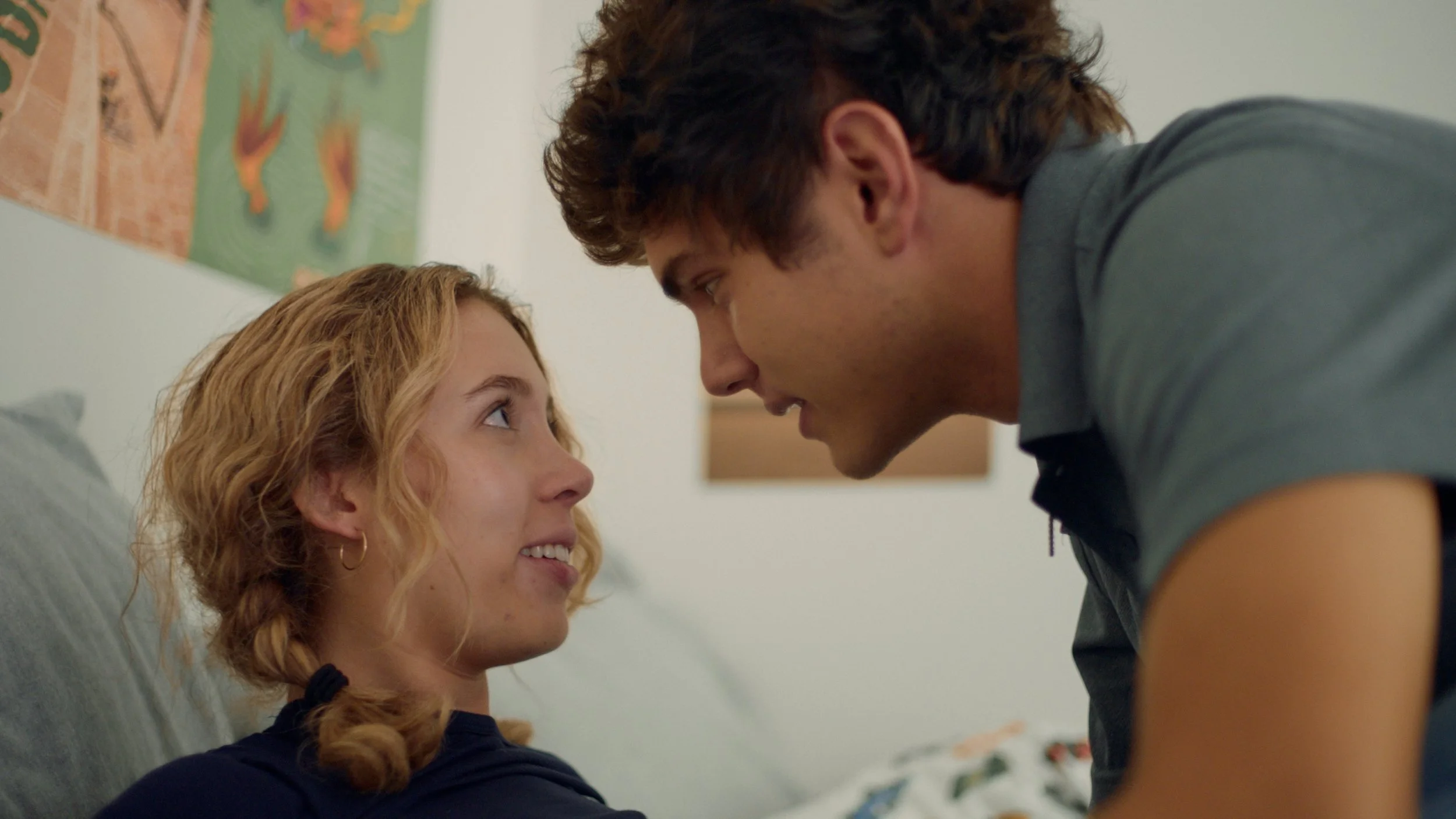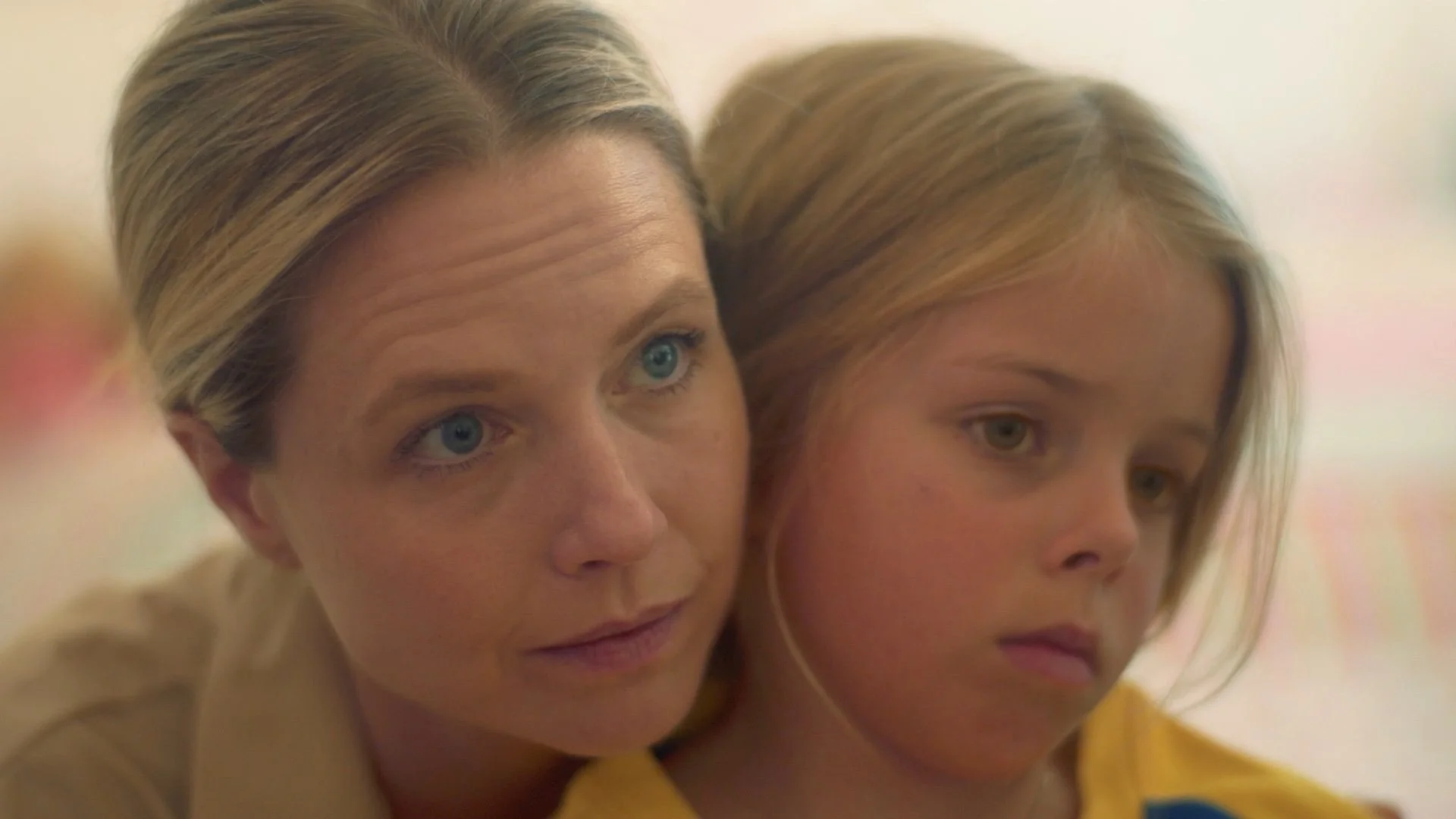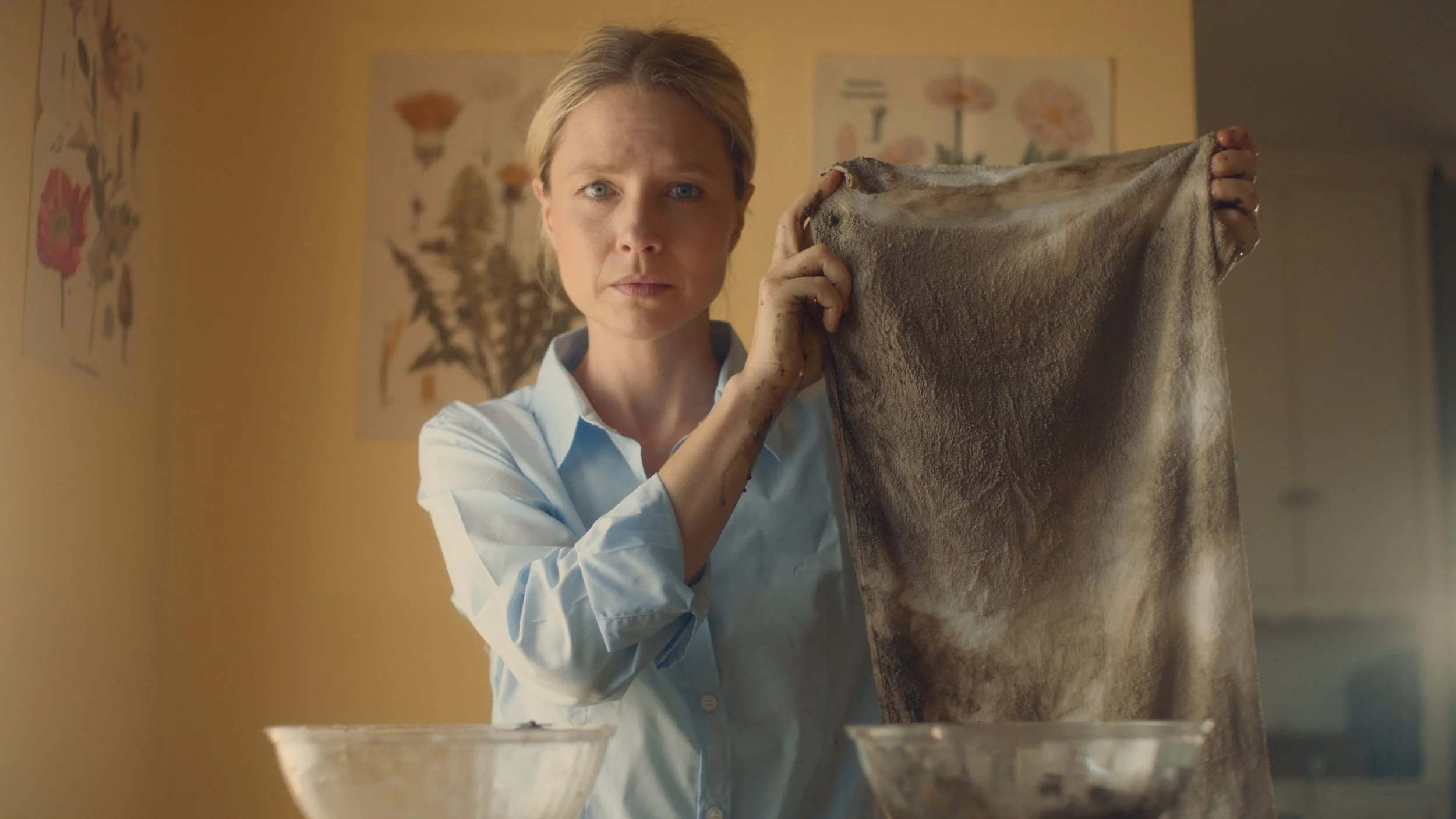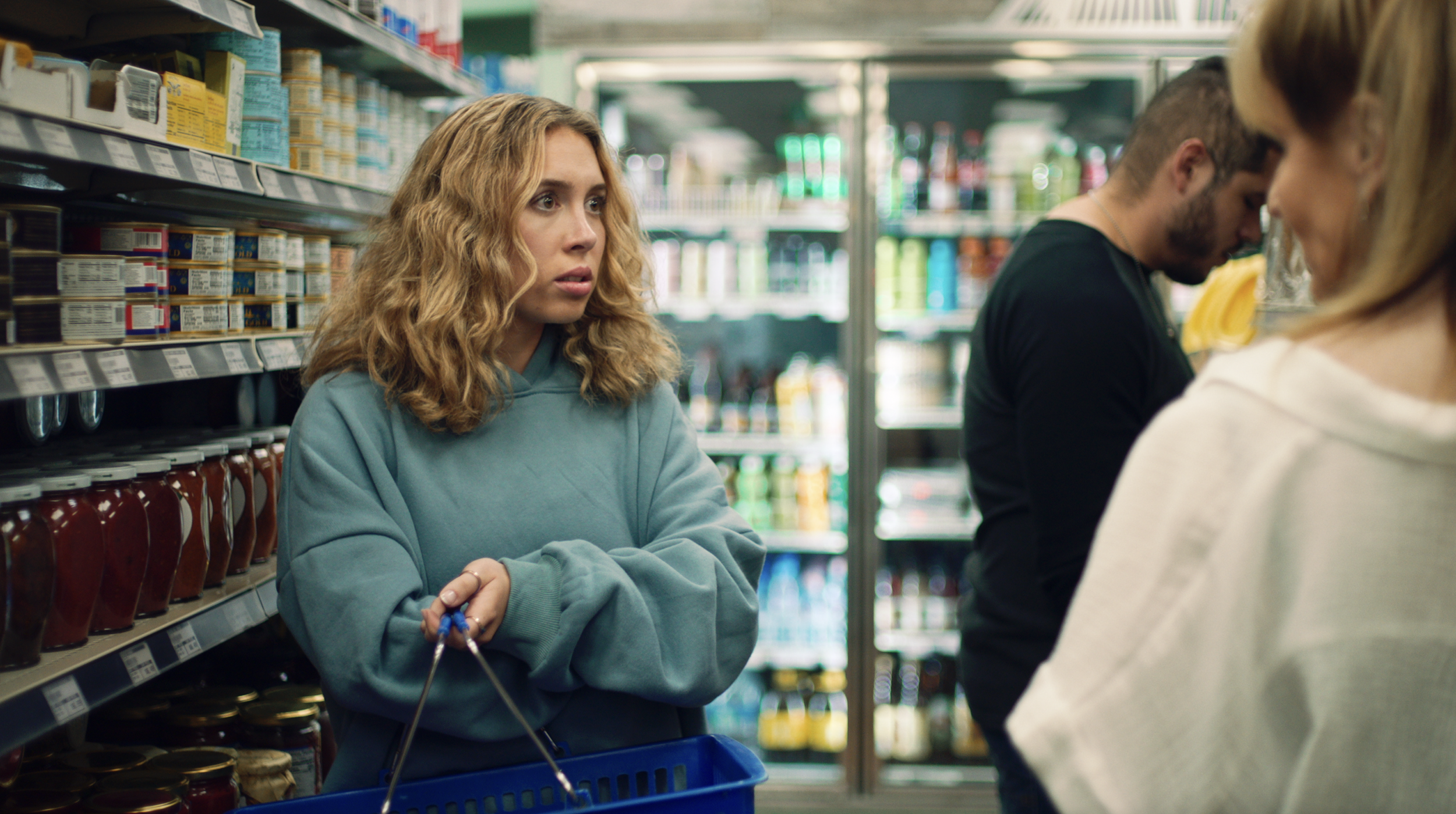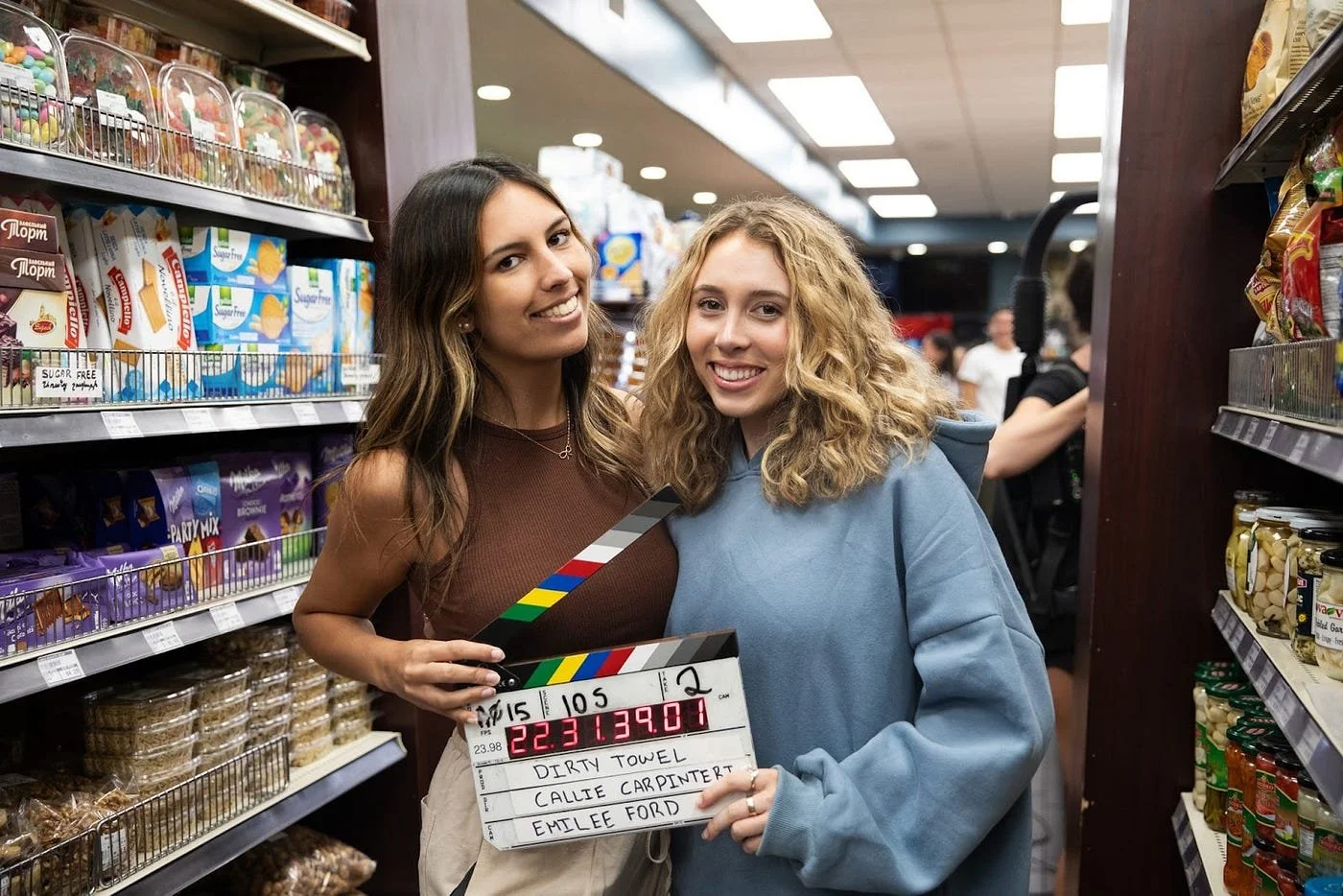Callie Carpinteri Redefines Female Narratives with “Dirty Towel”
A Bold Exploration of Generational Stigma and Female Identity Through Film
Filmmaker Callie Carpinteri brings an unfiltered and deeply personal perspective to the screen, using her storytelling expertise to challenge societal norms. Her short film, Dirty Towel, explores the weight of generational shame surrounding female sexuality, following a teenage girl as she grapples with guilt and self-worth after her first sexual experience. Inspired by real conversations and experiences, Dirty Towel serves as both a cathartic narrative and the foundation for a feature-length expansion.
In this conversation, Carpinteri discusses the origins of Dirty Towel, the delicate balance of drama and humor in tackling sensitive themes, and her mission to amplify women’s voices in the industry.
Callie Carpinteri on set of ‘Dirty Towel’
How did growing up in a small town in South Florida shape your perspective as a filmmaker and storyteller?
Growing up in a small town in South Florida shaped my perspective as a filmmaker and storyteller in a few key ways. Being surrounded by people from diverse backgrounds and cultures exposed me to a wide range of perspectives, which naturally influenced the kinds of stories I’m drawn to. What I always found special was seeing how people connect and empathize with one another despite their differences. That sense of human connection is something I always try to capture in my work as well as telling stories that capture universal emotions and experiences.
Additionally, growing up in South Florida I often felt far away from the industry. I didn’t grow up with any connections in the industry which shaped my perspective by really giving me that focus on being resourceful and creating my own opportunities. It also really strengthened my desire and determination to one day pursue this dream and create a path for others who may come from small towns far from the industry as well to believe they can do it.
Callie Carpinteri on set of ‘Dirty Towel’
“What I always found special was seeing how people connect and empathize with one another despite their differences. That sense of human connection is something I always try to capture in my work”
What were some of the most valuable insights you gained from your internship with the Television Academy, and how have they influenced your approach to filmmaking?
I gained so many incredible insights while interning through the Television Academy Foundation. One of the biggest things I learned was the importance of collaboration and community. I formed a true community while interning there with not only the incredible people running the program but with my fellow interns. It showed me the value that finding a creative community that you can trust and grow in. I also learned the importance of seeking guidance from trusted mentors. Every Wednesday, we had development meetings where industry professionals shared their insights with us. Those conversations were invaluable in shaping my understanding of storytelling, production, and the business of filmmaking. Beyond the internship, these lessons have deeply influenced how I approach filmmaking. I’m always looking to strengthen my creative community, collaborate in meaningful ways, and seek guidance from mentors. At the same time, I believe in paying it forward by sharing what I’ve learned to support other emerging filmmakers the way my mentors have supported me.
Emma Parks in a scene from ‘Dirty Towel’
What was the inspiration behind “Dirty Towel,” and why did you feel it was important to tell this story?
The idea for “Dirty Towel” originated from a conversation between myself and my co-writer, Emma Parks, about the shame surrounding sex and women’s sexual choices. We started talking to other friends and family and just realized more and more that unfortunately so many people, especially women, have felt shame for their sexual choices whether by society, religion, familial dynamics, or more. We were immediately inspired by and impassioned to tell this story to change that narrative and empower people. I felt like it was an important story to tell for a lot of reasons but one of them actually being that these themes are still so prevalent today. We’ve seen it not only through conversations but also in legislative decisions and more. In times like these, stories that remind people of the power in their voice and their choices feel more vital than ever.
Emma Parks and Ben Krieger in a scene from ‘Dirty Towel’
How did you approach balancing drama and comedy in “Dirty Towel,” especially while exploring sensitive topics?
Finding the balance of these two tones was definitely one of the biggest challenges in making the film. Throughout each stage of the process, it was such a delicate push and pull. When writing the story, Emma and I had long talks about what tone would best serve the story, especially as it does deal with so many sensitive topics. In general, Emma typically leans towards comedy whereas I’ve always leaned towards drama so writing together with that in mind really allowed us to put our own feel into each scene and find the nuanced balance. However, we also allowed those moments to become what they did while on set. We shot some scenes in many different tones so that when I was working with our editor, Jesi, we could really cherry pick the moments to lean more into one versus the other and just let the authenticity speak for itself.
Laura Coover and Laurel Nail in a scene from ‘Dirty Towel’
How did your collaboration with Emma Parks, as both co-writer and lead actress, shape the film?
Emma and I have a really strong foundation that helped a lot as collaborators. We’re actually cousins so being family first and having that shared background really allowed us to lean on each other and trust each other throughout the process. Even though this was our first time working together, it was incredibly fun and rewarding. When writing, we both put so much of ourselves into the story that shaped the film in ways it truly wouldn’t have without the other’s perspective. Having Emma’s talent as an actress brought the character of Charlie to life in such an authentic way. She had already lived with the character for so long and truly knew her that I firmly believe no one else could’ve played her.
Emma Parks in a scene from ‘Dirty Towel’
“When writing, we both put so much of ourselves into the story that shaped the film in ways it truly wouldn’t have without the other’s perspective.”
What does it mean to you to create opportunities for women both in front of and behind the camera?
It means everything. Growing up, it was rare to see powerful women on my screen and even rarer for them to be behind it. The lack of representation in the industry and the lack of dedication to telling female stories has only fueled my desire to change that. I want the stories I tell to focus on complex, authentic female characters and their experiences. Beyond that, I want the teams I work with to reflect that. I had an all-women key crew and 76% women on set for Dirty Towel and it truly impacted the film in such a positive way. Many of us had felt these experiences that we were exploring in the film so working together on it created a very healing space and one where women’s voices were truly encouraged and heard. As the filmmaking space moves towards a more inclusive place for all, I want to be a part of that change, not just by telling stories about women, but by actively uplifting and creating space for them at every level of filmmaking.
As you develop “Dirty Towel” into a feature-length film, what new dimensions of the story or characters are you most excited to explore?
As Emma and I have written and developed “Dirty Towel” into a feature film, we’ve really enjoyed going deeper into the generational aspect of the story, particularly through Elizabeth’s story. She’s such a complex, interesting character to us so exploring her own past and how that has affected who she is in the present and how she is as a mother has been challenging yet a lot of fun. Furthermore, the addition of the character of Evelyn, Elizabeth’s mother and Charlie’s grandmother, into the mix has added another rich dynamic to the story. Seeing these three generations of women interact, each shaped by their own experiences and beliefs, has been one of the most exciting aspects of expanding the film.
Laura Coover in a scene from ‘Dirty Towel’
“The lack of representation in the industry and the lack of dedication to telling female stories has only fueled my desire to change that. I want the stories I tell to focus on complex, authentic female characters and their experiences.”
What do you hope audiences take away from “Dirty Towel,” particularly regarding societal expectations around female sexuality and self-worth?
I truly hope that for any audience member who has ever felt this shame themselves, for whatever the reason, finds healing through watching our film and finds confidence in their choices. For those who maybe haven’t shared this experience firsthand, I hope they walk away with a greater sense of understanding and empathy for people around them, especially women, who do struggle with these expectations and judgment daily. More than anything, I also hope that the film sparks conversations and challenges people’s beliefs. The best way to break the stigma surrounding sex and shame is to bring it to light, talk about it openly, and normalize these discussions which is what I hope I did with this film.
Emma Parks in a powerful moment from ‘Dirty Towel’
“I hope they walk away with a greater sense of understanding and empathy for people around them, especially women, who do struggle with these expectations and judgment daily.”
What advice would you offer young filmmakers, especially women, who are trying to break into the industry and tell their own stories?
Just do it. It sounds so cliche but it’s honestly the truth. If there’s one thing I learned is that you truly have to create the opportunities you dream of for yourself. No one is going to ask you to make that film or write that story you’ve been thinking about for months, only you can take that first step. My second piece of advice is to be scrappy and resourceful. I know the cost and time commitment of making a film can seem daunting but I truly believe if you reach out to your community for help and have a story to tell, you will find the right people to help you do it. You don’t need lots of money to make a film, you just need the will, creativity, and humility to work with what you have and find the ways to do it.
Callie Carpinteri and Emma Parks on set of ‘Dirty Towel’
“No one is going to ask you to make that film or write that story you’ve been thinking about for months, only you can take that first step.”
What kinds of stories are you most passionate about telling, and how do you hope to influence the industry through your work?
I want to tell stories that show the depths of what it means to be human and explore human connection. Whether that’s through exploring relationships between people, personal struggles, or the quiet moments that shape who we are, I believe there is something so beautiful about those films. I’m particularly drawn to female-driven stories that challenge societal expectations, especially surrounding identity and self-worth. I hope to influence the industry by contributing to the independent filmmaking scene and proving that there is a real market for authentic, bold, nuanced, personal storytelling. I also want to use my work to create more opportunities for underrepresented voices, both in front of and behind the camera, and help push the industry toward a more inclusive and diverse future.
Explore more about Callie Carpinteri and Dirty Towel:
Instagram: @dirtytowelmovie
Filmmaker Website: www.calliecarpinteri.com
Director: Callie Carpinteri
Producers: Callie Carpinteri, Emma Parks, Katrina Lee, Cassidy Campbell, Vanessa Nottingham
Screenwriters: Callie Carpinteri, Emma Parks
Cinematographer: Emilee Ford
Editor: Jesi Rojas
Composer: Rosalind Wong
Production Designer: Bridget Perdomo
Cast: Emma Parks, Laura Coover, Ben Krieger, Laurel Nail
Pitch to Screen® LLC. All rights reserved.

